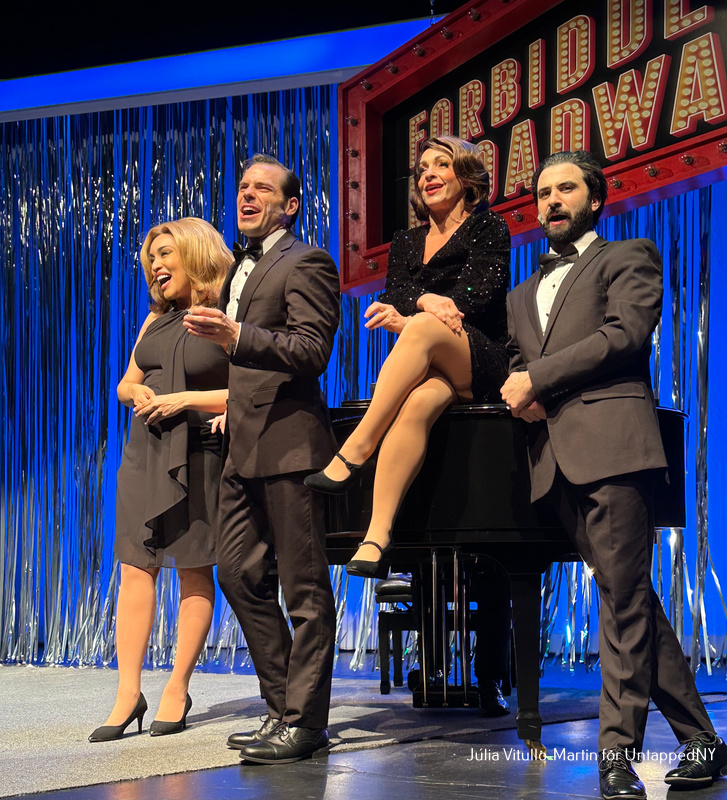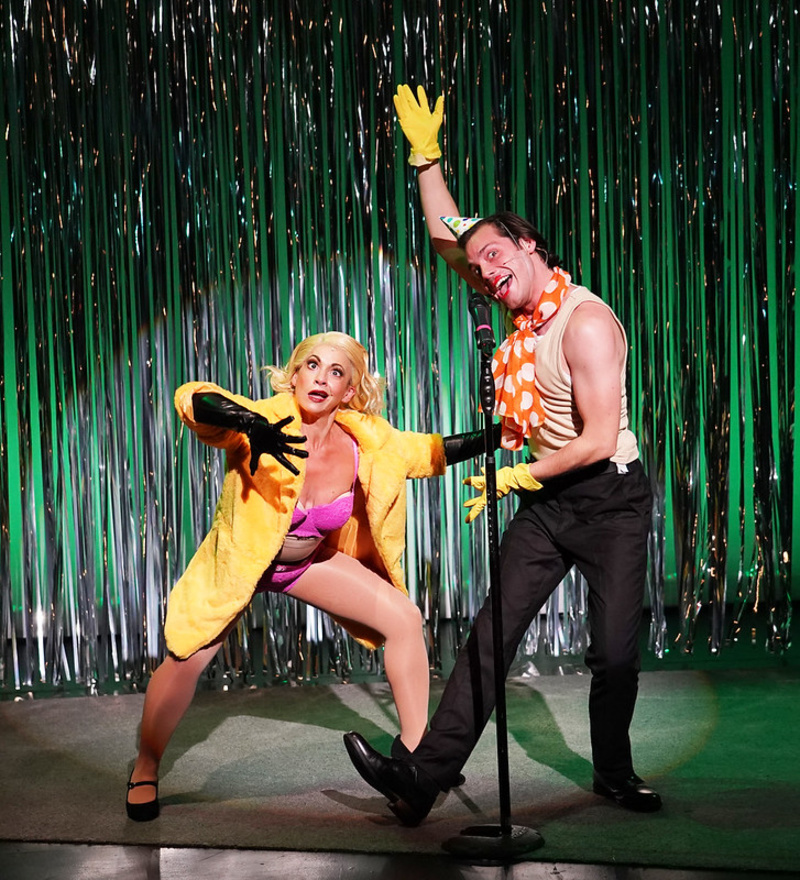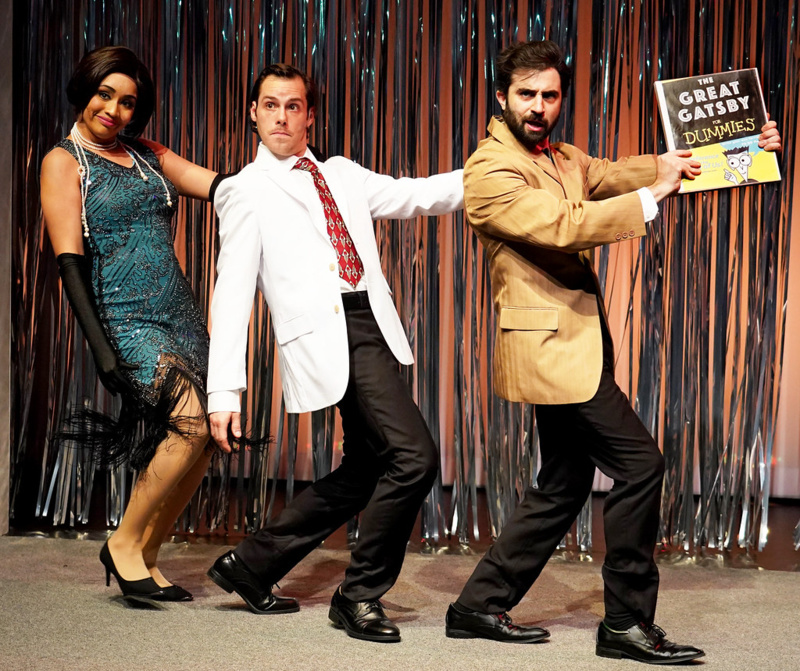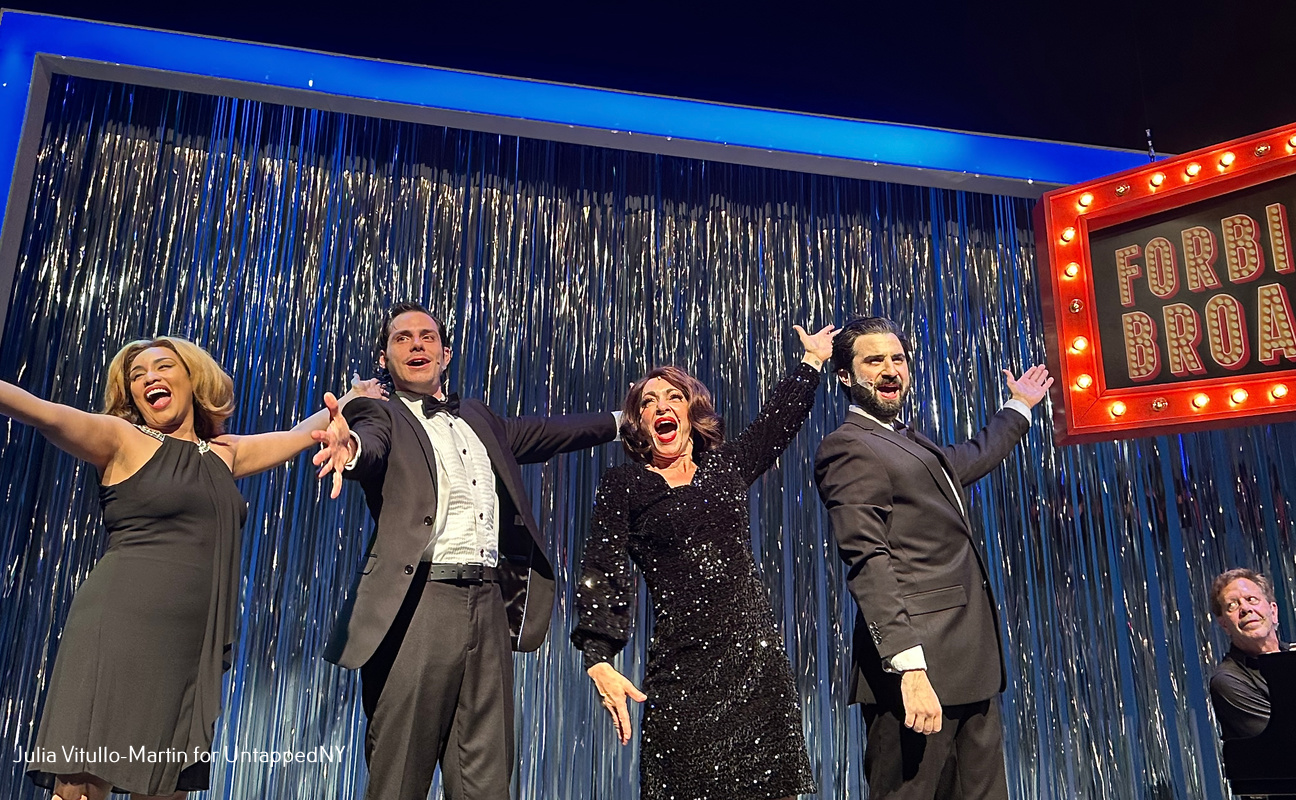Last-Minute NYC Holiday Gift Guide 🎁
We’ve created a holiday gift guide with presents for the intrepid New Yorker that should arrive just in time—

For nearly four decades, Forbidden Broadway has been taunting, admiring, undermining, and celebrating the best and worst of New York theatre!

Sheer fun! If that’s what you’re looking for, head to Hells Kitchen’s Theater 555 for Gerard Alessandrini’s newest Forbidden Broadway production. Since 1982—the same year, says the Playbill, that Stephen Sondheim’s “Merrily We Roll Along” opened—Forbidden Broadway has been taunting, admiring, undermining, and celebrating the best and worst of New York theatre. And not only in New York City but in more than 200 cities around the world. The current show, Forbidden Broadway: Merrily We Stole a Song, satirizes Broadway musicals including The Great Gatsby, The Wiz, Merrily We Roll Along, Back to the Future, Hell’s Kitchen, Stereophonic, The Outsiders, and more.

Forbidden Broadway is a revue with opinions—not just about Broadway theater but also about Broadway audiences. As you settle into your seat you hear what seems to be a standard pre-show announcement (“turn off your cell phones”) but, quixotically, the announcement quickly morphs into reprimands: “Could you please keep quiet!/ Remember you are OUR guest here.”
Because Jenny Lee Stern is so endearing as the usher, everyone catches on immediately and starts laughing. (I saw “Merrily” twice, with very appreciative audiences both times.)
To the tune of Frank Loesser’s “Sit Down You’re Rocking the Boat,” Stern sings: “At work last night, half the audience was raucous; I had to scream just to make them get along/But they all laughed and kept talking on their cell phones/ Theater etiquette is dead, right or wrong. So, I screamed at them all, ‘Sit down!’”
Almost by definition, Forbidden Broadway audiences have been around for a long time and seen it all—including generations of atrocious behavior. The current audience segues rapidly into the mood, clapping and foot-stamping as Stern sings on, “All through Act One half the audience was texting/ their faces glued to a blue light on a screen.” Hoots of approval as she continues, “But the stupider ones stood up/And started blocking the aisle/So I said to them all shut up!” The words are cruel but delivered by the adorable Stern they seem fair, and certainly the audience thought so.

The revue starts shrewdly with a song everyone knows, “Wilkommen,” from Cabaret—a production nearly every theater lover has seen in one form or another whether it was the original 1966 stage production, the 1972 movie, the 1987 revival (followed by the 1988 revival), the 1995 revival, or, says Forbidden, “a revival of a revival in 2010,” then 2014, and 2024. One could argue that all is fair on Broadway, with liberties taken at every stage. The 1966 Cabaret was derived from a 1951 Broadway play, I Am a Camera, which in turn was adapted from a 1939 novel, Goodbye to Berlin.
Broadway’s habit of reviving, milking, and sometimes draining the life out of brilliant shows is an Alessandrini refrain. Everything old may be new again, but sometimes it’s also tired, strained, and pointless. Cabaret’s recent journey has been near heart-rending: From Joel Grey in 1966, who “was delightful, with no dirty tricks, so charming,” through risqué Alan Cumming whose show was “dark as a black hearse,” to the “even worse” Eddie Redmayne. In Forbidden’s revue, Danny Hayward sings as Redmayne, “I put this classic in danger/ And I have no charm/ I will repulse you.”
Yet just as Hayward’s Redmayne impersonation starts to approach the unbearable, Jenny Lee Stern appears as Sally: “What good is playing/ This role the ol’ way/ Liza was just OK/ Come see my dark deranged display.” She breaks down and leaves.
“Nightmare on Elm Street in Berlin is the new way to slay a play like Cabaret,” sings Hayward happily.

Wretched as Cabaret‘s descent from brilliant to disastrous has been, F. Scott Fitzgerald’s masterpiece, The Great Gatsby, is regularly and usually disastrously revived. How can that be? Forbidden gives us the answer. Sung to the tune of “Good Morning,” we hear: “Great Gatsby, Great Gatsby, It’s ours to trash for free/ The big trick?/ It’s public domain.” And as Nick (Hayward) says, as the audience cringes, “We can destroy it any way we want.” Still, the tune is so peppy and the singing so good that even huge fans of the original novel, now so sadly degraded, are willing to go along or, as Nick advises, “Keep on smiling through.”
There’s much, much more.
Broadway is not just Midtown, notes Forbidden, there’s Lincoln Center on the Upper West Side. Engagingly sung to the waltz from Swan Lake, we hear, “Filled with beauty/ It’s your duty/ To be snooty/ And prove that you’re smart.” Alessandrini takes the opportunity to skewer the now prevalent practice of casting celebrities in everything, whatever the consequences: “Lincoln Center is the center of miscasting famous stars/ In our quest to be inventive we’ll fly names in from Venus and Mars.”
There is also the new Perelman Performing Arts Center downtown, which produced The Jellicle Ball. The show was called a radical reimagining of Andrew Lloyd Webber’s musical based on T. S. Eliot’s Old Possum’s Book of Practical Cats. Alessandrini carried that radical reimagining a bit further with fantastic costumes and wigs. In Forbidden Broadway, he has Grizabella sing, to the tune of “Memory,” “Campiness! Cats merging with Ru Paul.” Cat 1 asks, “Are you blind to good taste?” And Cat 2 adds, “Have you no money to waste?” The cats, vogueing and snapping their fans, are adorable.
Not every play gets a full song, but many earn an individual barb. Borrowing “One” from A Chorus Line, Stern sings: “Six! What an aggravation/ Every million bucks it makes.” Nicole adds, “Six! What humiliation/ every Tony it takes.”
Or Stern again as Hillary Clinton, producer of the surprise hit, Suffs, saying, “I’m here to represent the last, the lost, and the least. By that I mean Lempicka, Tommy, and The Notebook. (Bye.) I just want my grandchildren and great-grandchildren to know, I saved Broadway by producing ‘Suffs!’”
Or Ortiz as Audra McDonald summarizing her competitors in Gypsy: “Merman was too loud/ Patti was too proud/ Bernadette was meek/ Rozzie Russell weak/ Tyne was under pitch/ Staunton was a bitch/ Midler was too brash/ Betty Buckley trash/ Angie was alright but she was polite.”
There is so much more. Go see for yourself!

Forbidden Broadway: Merrily We Stole a Song plays through Friday, January 5, 2025, at Theater 555. Tickets (priced at $79, plus fees), are available online.
Next, check out a Q&A with Broadway Costume Designer Paloma Young
Subscribe to our newsletter